The R@ISE project serves as a catalyst for the development of a strong Low Code / No Code (LCNC) research and adoption capability for Ireland. Supported by eminent scholars, international domain experts and corporate and public sector partners, this multi-dimensional and visionary project will lead research and dissemination programmes in both core (Low Code / No Code development platforms) and applied Software Engineering (Digital Thread).
The project was launched on April 4th in the University of Limerick.
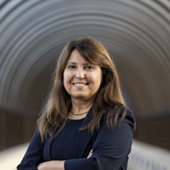
Professor Tiziana Margaria has broad experience in the use of formal methods for high assurance systems is currently Vice President of the European Association of Software Science and Technology (EASST); President of FMICS (the ERCIM Working Group on Formal Methods for Industrial Critical Systems); and co-founder of the TACAS and ISoLA series of conferences. Tiziana is a Fellow of the Irish Computer Society and of SDPS. Tiziana is a professor of Software Systems at UL and Lero, and Co-director of the ISE programme.
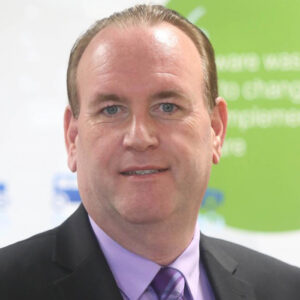
Professor Mike Hinchey is the former Director of Lero and Professor of Software Engineering at the University of Limerick. Prof Hinchey was previously Director of the Software Engineering Laboratory at NASA Goddard Space Flight Centre in Greenbelt, Maryland. He remains as a consultant to NASA. His work with NASA was implemented in various space projects and will be incorporated in future missions. Particular areas of software research for Professor Hinchey include Formal Methods, Autonomous Systems and Software Reliability.
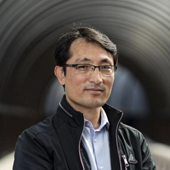
Dr. Salim Saay is a Lecturer and Researcher at the University of Limerick and Lero-the SFI Research Centre for Software. Salim has worked as Associate Professor at Kabul University and as a Lecturer at the Athlone Institute of Technology. He has also worked in government and various industries, including as Director of IT and Manager of AfgREN-Afghanistan Research and Education Network at the Ministry of Higher Education of Afghanistan, NATO, and UNDP. Salim's research interests include architecture designing, low-code software development, and organisational collaboration. He has secured international funding for his studies and research and currently working on three research projects.
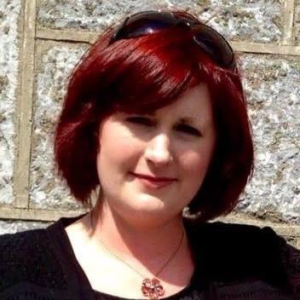
Dr Katie Crowley is a Lecturer in the Department of Computer Science and Information Systems at the University of Limerick. Her research interests include Affective Computing; Human Computer Interaction; Psychophysiology and Wearables; Health Information Technology and IoMT. She is the Course Director for the MSc in Health Informatics in the University of Limerick. She has experience working with, and in industry, including securing national funding for industry partnerships (SFI). She has been a team member in multi-disciplinary international research projects co-funded by industry and national funding bodies and has led projects as Principal Investigator and Senior Researcher.
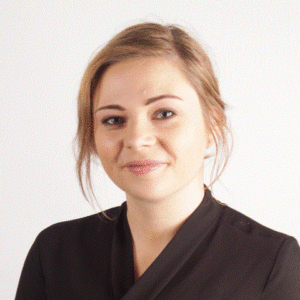
Roisin Lyons is a Lecturer of Innovation and Entrepreneurship in the Kemmy Business School, University of Limerick. Her research focuses on education (pedagogy), innovation and entrepreneurship, and family business. She is passionate about social and sustainable innovation, and developing novel educational experiences like hackathons and gamified interventions. A former science teacher, Roisin holds a Ph.D. in Entrepreneurship Education and a M.Sc. in Business Management.
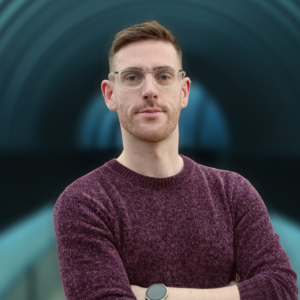
Sean O'Brien is the R@ISE Project Manager. A qualified science teacher, Sean has managed and led multiple projects and programs over the past 14 years, primarily focusing on engaging stakeholders with STEM education and research. He has extensive experience in managing research projects, particularly within the SFI ecosystem, having joined the University of Limerick in 2018 as the EPE Programme Manager for the CONFIRM Centre. Sean holds a B.Sc. in Science Education and a M.Sc. in Project and Programme Management, both from University of Limerick.

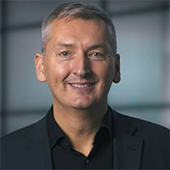
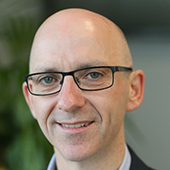

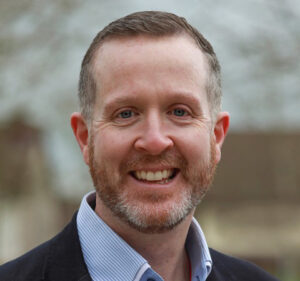
“No-code software tools free up developers’ time and help make software development more broadly accessible. We’re excited to see how the University of Limerick’s research advances this kind of software development.”
|
Stripe
R@ISE industry partner
“The new low-code/no-code (LC/NC) model-driven approach – as proposed by R@ISE – is an alternative to conventional software development where developers as well as non-developers are equipped with the tools to design, develop, verify and deploy applications quickly and with none to minimum coding requirements.”
|
Professor Tiziana Margaria
R@ISE project leader
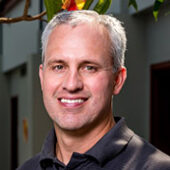
Dr. Fisher has been a professor at Rose-Hulman Institute of Technology for 18 years serving as a joint appointment between the Mechanical Engineering department and the Computer Science and Software Engineering department. He has worked for many interesting companies, including Google and Apple in the Bay Area, California. Additionally, Dr. Fisher worked in University of Limerick for a year as a Fulbright Scholar. Dr. Fisher specialises in robotics, mobile app development, and smart product design. His passions lie in teaching and leading coding outreach programs to primary schools.
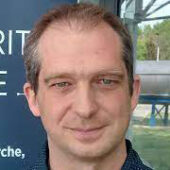
Axel Legay is Professor at UC Louvain. He received his Ph.D. in Computer Science from the University of Liège, Belgium. His main research interests are in formal verification, testing, and cyber security . He is a founder and major contributor of statistical model checking (a statistical variant of model checking effectively used in industry), proveline (product lines analysis) , and malware analysis. He wrote more than 300 publications and he is a referee for top journals and conferences in those areas; He wrote several open source tools, and he has been institution PI for more than 30 projects.
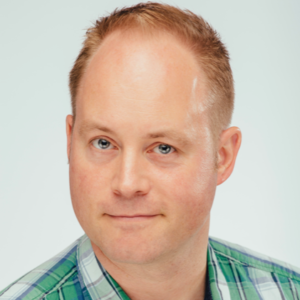
Alex Norta is currently a scientist entrepreneur focusing on his blockchain startup. Simultaneously, he lectures is currently affiliated to the Johannes Kepler University in Austria Linz for his habilitation seminar. He was an associate professor at the Department of Software Science of TalTech until March 1st, 2022 and earlier a researcher at the Oulu University Secure-Programming Group (OUSPG ) after having been a post-doctoral researcher at the University of Helsinki, Finland. He received his MSc degree (2001) from the Johannes Kepler University of Linz, Austria and his PhD degree (2007) from the Eindhoven University of Technology, The Netherlands.
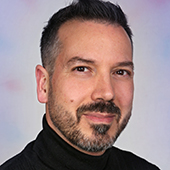
Graziano Pravadelli, PhD in computer science, IEEE senior member, IFIP WG 10.5 chair, is full professor of information processing systems at the Department of Engineering for Innovation Medicine of the University of Verona (Italy). His main interests focus on semi-formal verification of HW/SW embedded systems as well as design and validation of virtual coaching systems to promote well-being and health of people through IoT technologies. Since 2007 he is co-founder of EDALAB, an SME that develops embedded software and IoT-based monitoring solutions for smart building and assistive home automation.
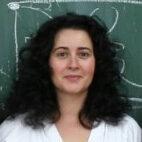
Cristina Seceleanu is Associate Professor and Docent at Mälardalen University (MDU), Sweden, School of Innovation, Design and Engineering, Networked and Embedded Systems division. She is the research leader of the Computer and Data Science research direction, and co-leader of the Formal Modeling and Analysis of Embedded Systems research group at MDU. She holds a M.Sc. in Electronics (Polytechnic University of Bucharest, Romania, 1993) and a Ph.D. in Computer Science (Åbo Akademi and Turku Centre for Computer Science, Finland, 2005). Her research interests and experience lie in formal modeling and verification of real-time, adaptive, and autonomous cyber-physical systems.
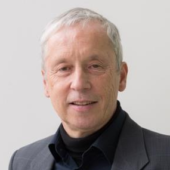
Bernhard Steffen is a German computer scientist and professor at the TU Dortmund University, Germany. His research focuses on various facets of formal methods ranging from program analysis and verification, over low code development environments, to test-based modeling, and machine learning.[1]1] Central developments concern the shift of active automata learning to towards a practical means for model-based testing that does not require any a priori models, and the concept of Language-Driven Engineering where combinations of domain-specific languages guarantee properties by design. Recently, he started to apply formal methods for explaining machine learning.
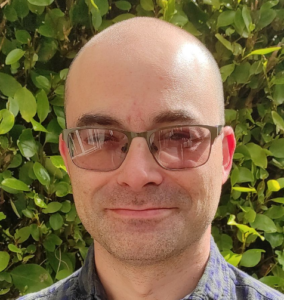
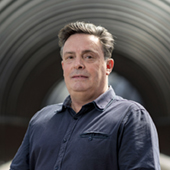
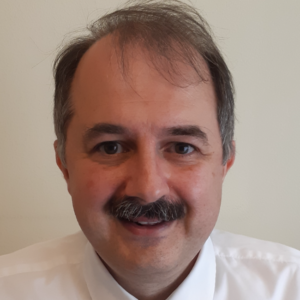
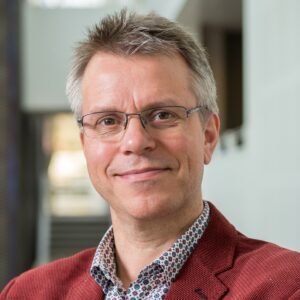
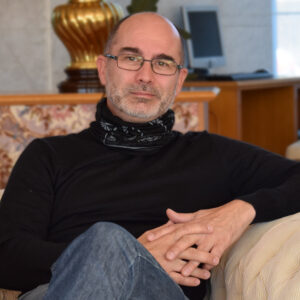

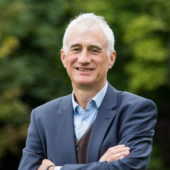
Brian Fitzgerald is Director of Lero - Science Foundation Ireland Research Centre for Software where he previously held the role of Chief Scientist. He holds an endowed professorship, the Krehbiel Chair in Innovation in Business & Technology, at the University of Limerick, Ireland, where he also served as Vice President Research. He was recently elected as President of the Association for Information Systems, the global body for information systems worldwide. He holds a PhD from the University of London and his research interests lie primarily in software development, encompassing open source and inner source, crowdsourcing software development, agile and lean software development, and global software development.
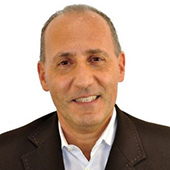
Franco Fummi received the Laurea degree in Electronic Engineering at Politecnico di Milano in 1990 and the Ph.D.in Electronic and Communication Engineering in 1994 at Politecnico di Milano. In 1993 he was Research Assistant at the department of Computer Science of the University of Victoria (B.C.). In 1996 he obtained the position of Assistant Professor in Computer Science at the Dipartimento di Elettronica e Informazione of Politecnico di Milano where he remained until October 1998. In July 1998 he obtained the position of Associate Professor in Computer Architecture at the Computer Science Department of Università di Verona. Since March 2001 he is Full Professor in Computer Architecture at the Computer Science Department of Università di Verona.
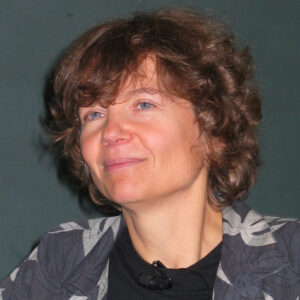
Click image to find out more.
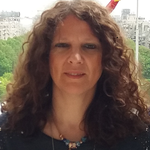
Marina Marchisio is a full professor of Complementary Mathematics at the University of Turin and Delegate of the Rector for the development and promotion of the University's Digital Education strategies. Her research is focused on Digital Education, in particular learning and teaching Mathematics and scientific disciplines with digital methodologies and innovative technologies. She coordinates the DELTA - Digital Education for Learning and Teaching Advances - Research Group of the University of Turin. She is a member of the Problem Posing and Solving working group of the Italian Ministry of Education which involves more than 800 secondary schools, 2000 teachers and 30000 students all over Italy. She is the President of the University Interdipartimental School in Strategic Sciences of the University of Turin and is the coordinator of a PhD Program in Strategic Sciences. She coordinates several research and didactic projects, held and organized numerous conferences, and is the author of several publications on Digital Education.
The goal of Immersive Software Engineering is to turn curious, creative people like you into the best software engineers in the world.
University of Limerick
By submitting your email, you agree to our Terms and Privacy Policy